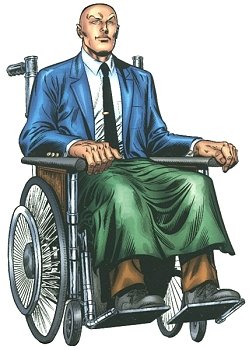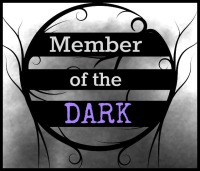I was looking through my other ideas while waiting for a headache to go away and I noticed a few interesting characters. Missing eyes, missing limbs, weak heart, and other disabilities that limit them. These heroes are not the standard, but I’m still working them to be heroes. It isn’t like a disabled superhero is new considering you have Professor X, Daredevil, and several others. Yet, I don’t know of many in the Fantasy genre, so this might rougher.
I’m going to stick to physical disabilities here because the mental ones are another can of worms. In fact, I think those can be easier to work with due to character development and personalities. The physical handicaps can be a lot tougher because the author typically doesn’t share these handicaps. So, you might slip and have the character do something that they can’t actually do. A blind hero reading street signs, a wheelchair-bound hair going up stairs, and other minor things that we take for granted. Can these things be done in some fashion? Yes, but you have to be clear instead of simply saying they do it. Even worse, you have to do this without harping on their disability because you don’t want that to be the sole identifier of the character.
My biggest challenge is going to be Freya Arvanti. She is a blind half-elven warrior who uses a spear. I played a male version of her in a game, which didn’t go well. Dungeons & Dragons wasn’t very good for such a disability back then. So, I’ve had to write test scenes with her. I gave her better hearing than normal because of her elven heritage, but it’s still difficult. I have to remember she works by her ears, touch, and nose. So, I can’t have her react to things that one can only see. I’m aiming for the blind swordsman concept with her.
So, has anyone tried to write a physically disabled main character? Any advice or warnings about doing it?






I read a book once about a guy who overcame many obstacles after having become wheelchair bound. The author’s afterword explained how he actually spent time in a wheelchair beside his real life character, living in his shoes (no pun intended) to get the experience he needed to write. have you ever spent a day in a blind fold? I did in high school. I think I would go crazy after about 15 mins now.
LikeLike
I never spent time with a blindfold. I have done exercises where I have to move around with my eyes closed. Moving around in the dark a lot helped me figure out how one could walk. I react to sound a lot since childhood, which helps a bit. It’s going to be interesting to try.
LikeLike
One thing for certain, it truly does make your other senses keener.
LikeLike
Definitely. You pay more attention to them.
LikeLike
so far the only disabilities I’ve written about are those people don’t see, (emotional and mental disorder) and I really rarely label a specific disorder, I try to imply the disability by personality traits and the like…
LikeLike
I think people go for the internal disabilities because they are easier to handle and work with. Most characters tend to have one or two issues for flavor too. At least the good ones.
LikeLike
I do have a character in my ever-evolving story that has a badly injured arm, but I have yet to decide if it is permanent and I am leaning to it not being so because of the time it is set in… In the stone age such an injury would probably mean a death sentence…
LikeLike
They’d probably get picked off by a predator or put out of misery. I have a warrior with old injuries that still fights at times. I made him slow to move, but have quick wrist reflexes. So, he does a ‘stand your ground’ style of fighting with allies covering his back. He rarely fights though.
LikeLike
Excelent post, charles and an interesting topic (one of those that many shy away from as taboo, which is a shame). I have a character who loses a leg (no spoilers as to who) and I thrashed this very conundrum about for a while too. I have a friend and a friend of the family who are physically disabled that helped me with this though, they talked about their general frustrations with their disabilities, a little amount of resentment for those more abled but mostly their upset over being seen as less than human or normal. I was a little upset myself to discover that so many avoid those less able or treat them differently to anyone else. I guess the main point here is to express what hinderence the disability has, how it affects their other abilities and to always remember their emotional state. Almost all who suffer a disability prove they are more than able to accomplish as much (and often more than) as others. Many strive, if only to prove to themselves, that they can accomplish anything. The friend of the family is wheelchair bound after beating cancer three times (THREE!) and leads a remarkable life, a real hero of mine. Just look at the paraolymics, super-humans, my friend. As for mental disability and affliction, I’m working on that and will let you know.
The one fantasy series that stands out for me with a disabled character is the daughter of the empire trilogy by raymond.e. feist and janny wurts where the main protagonist’s bodyguard/comander lost a limb and went on to run her army etc, there are others with blind heroes and such, I’ll have to have a good think about it. Great post, Charles, keep smiling 🙂
LikeLike
I took a lot of psychology courses and have a few mental disabilities in the family, so I have more knowledge on that than physical disabilities. You’re right that people shy away from the physical ones in both discussion and literature. I think people are scared to mess it up or offend or have a ‘weak’ character.
LikeLike
I have a character who suffered a cranial injury in Catskinner’s Book, and I refer to him in Cannibal Hearts, but I don’t really bring him back. (He’s in the background of one scene towards the end.) I’ve known a number of people with brain injuries–which is why an essential anarchist like myself does support mandatory helmet laws on all interstate highways.
I wrote him as having what I see as the most frustrating of long term effects, he has intermittent vision problems, which means that even though he is perfectly fine most of the time he can’t drive a car or many other things that most people take for granted.
One book that really impressed me was Ken Casper’s “As The Crow Dies”, which is mystery written in the first person. The narrator has had both of his legs amputated and the descriptions of him dealing with his prostheses seemed quite realistic to me. It made me wonder if the author himself was an amputee, but I checked his website and he isn’t.
LikeLike
That’s an interesting disability. Nothing extreme, but enough to make the character have difficulty with certain things. A lot of authors tend to overdo a disability and making it the core of the character, so I think I’d prefer what you described.
I’ll have to look into that book. Losing of legs is one of those disabilities that I want to try at some point.
LikeLike
Sometimes disabled protagonists or supporting characters can be fascinating, but it must be quite a challenge for the writer to pull it off. 🙂 I forget the title and author, but I once read a thriller where the protagonist was a quadraplegic. The character was highly developed, and nothing prevented him from unraveling the mystery. I’ve seen blind fighters before, at least in books or movies.
LikeLike
Blind fighters seem to be very common. Impressed about a story with a quadriplegic protagonist.
LikeLike